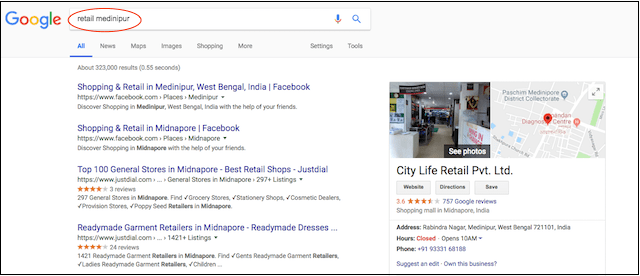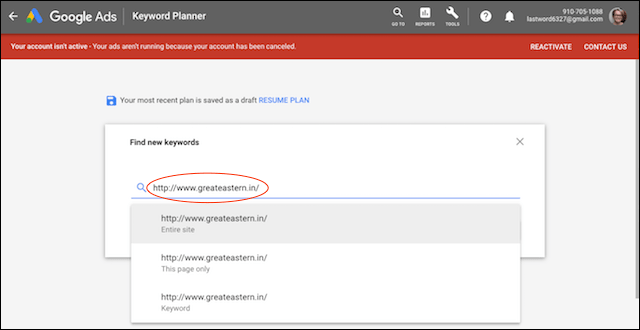Millions of entrepreneurs in India’s tier-2 and tier-3 towns are selling products through their websites every day. But at some point, they realize the only way to grow is to bring still more people to their websites. The question is how? We can answer this question by defining what is SEO (search engine optimisation).
Nearly 70 percent of Indian respondents to a 2017 study said they search for information on the internet before making a purchase.
Much like people around the world, India consumers do online research before making a purchase. This provides a prime opportunity for business owners who have the eyes to see. Clearly, the first step in getting in front of those who are searching, is to attract the attention of the search engines.
What is SEO?
SEO is a well-defined series of steps that website owners can take to ensure search engines include their websites in search rankings. Since search engines are the primary way consumers find businesses, it is an effort well worth your time.
By bringing visitors to your website, SEO helps in lead generation.
Your business website will inform existing and potential customers about the nature of your business and the type of products and services you provide. But it is also used to generate ‘leads’ or new business from new customers.

There are thousands of websites that sell products like yours — and hence thousands of listings on search engine pages like the one above. But those searching online rarely look beyond the first page of the search results.
So the objective of SEO is to get your site listed on the first page, as high up on that page as possible. In this article, I describe organic SEO using specific techniques to improve your website’s search ranking — for free.
Related: Beginner’s SEO Guide
It’s all about keywords
At its heart, SEO is about keywords. These are the words people type (or speak) into search engines when they look for something online.
So the first step in SEO is to identify the words or phrases that people use when they search for products similar to the ones you sell. There are many ways to do this:
- Talk to your customers to understand what keywords and phrases they use when searching for businesses like yours online.

- Find out which keywords your competitors are using by copying and pasting their web addresses into the Find new keywords box of Google’s free keyword planner.
- Based on what you find, research similar keywords using Google’s tool, the SEMrush Keyword Magic Tool or one of the many others available.
When selecting keywords for your business website, try to choose keywords with low or medium competition and good traffic (above 1,000 monthly searches). Remember, the goal is to choose keywords that likely customers would type into Google when searching for your products or services.
How to choose keywords
Look at the content on each page on your website. Do you see certain words repeating? Those provide clues to your keywords for that page.
Imagine that someone is using a search engine like Google to search for a new pair of shoes. What would they type in the Google search box? They might type in a few words like ‘Brown shoes in Italian leather.’ That’s a keyword phrase or a long tail keyword.
Use long tail keywords, as you stand a better chance of being discovered on the web.
You can get tips and ideas on finding your keywords in this post.
Where to use keywords
Search engines have special programs that scour the internet looking for and indexing web pages (including yours). These programs are also called bots, crawlers and spiders.
Crawlers examine the content on each of your web pages to discern what the page is all about. They look for look for word patterns, how often those words are repeated on the page. And they look at specific areas on the page including:
- The URL or web page address.
- The title of the page.
- The first paragraph.
- In an H1 tag on the page.
- In the meta description and alt description in the page header section.
- Throughout the written text on the page (once for every 100 words).
At this point, SEO is pure science. You simply need to add the keyword you’ve chosen in each of these places on every page of your website (using a different keyword for every page).
Keyword density
This is the number of times a keyword or keyword phrase appears on a page, in relation to the total number of words on that page.
It’s important to get the keyword density right — too few keywords on the page and the search engine crawler will not be able to understand what the page is all about. Use too many keywords, and Google’s algorithm will think you are overdoing it on purpose and could blacklist your website.
Keyword stuffing will deteriorate the quality and readability of the text and harm your ranking.
There is no ideal keyword density for getting a higher ranking on Google. That’s because in addition to word patterns, Google’s algorithm considers other factors such as:
- Relevance to the searcher’s query.
- General quality of the content.
- Authority of the page, as indicated by how many other reputable sites link to it.
- How often the page is updated.
- Many other factors.
But SEO experts generally recommend a keyword density of between 1 and 3 percent.
Editor’s note: If you don’t have the time or interest to do your own SEO, call in the experts at GoDaddy. They’ll identify keywords, then walk you through the process of adding them to your website.
Keyword tips
Before I conclude the article, here are some SEO tips to take your web pages high up on the search engine results pages, thereby bringing more people to your website.

Photo: Benjamin Dada on Unsplash
Use keyword phrases
Using keyword phrases or long tail keywords instead of single keywords is more effective, and increases the chances of someone finding your website.
That’s because certain single keywords can be used in multiple contexts. Take the keyword ‘policing’ for instance. It could be used as ‘policing the internet’ or ‘policing the community.’ If you use ‘policing’ as a keyword on your page, you are likely to attract many people who are looking for something else (and are not good leads for your business). So it’s better to write a keyword phrase to tell search engines exactly what each page is about.
Avoid broad terms
In the same vein, refrain from using broad terms like ‘warranties’ as a page keyword. Be more specific and use ‘home warranties’ or, better yet, ‘Whirlpool 190L single door refrigerator warranties’ instead (if that is what the page addresses).
Use the plural form
By mentioning ‘trucks’ you also include ‘truck’ in the search possibilities.
Synonyms
The words ‘hotel’ and ‘lodging’ mean the same thing. But people are more likely to search for ‘hotel.’ So give careful thought to usage when defining your keywords.
Consider intent
A keyword like ‘orange’ could refer to the fruit, the colour, or the House of Orange (politics in the Netherlands). So your keyword has to provide more context, to make the exact nature of your content discernible to search engines.
It has been proven that people skim through long texts and do not read every word on a web page. This is especially true when reading texts on small-screen mobile devices. So it might be a good idea to boldface certain keyword phrases in the text. Don’t overdo it though, as readability will suffer.
Summary and conclusion
If you’ve read this far in the article, you now know the answer to ‘what is SEO?’ You have all the knowledge you need to adjust your web pages and website so that search engines understand what they’re about.
When done right, SEO will undoubtedly increase visitors to your website.
It is essential to keep one fundamental rule in mind: Always consider web page optimisation from two dimensions: You must optimise for search engines and for human readers.You’ll need to use the right number of keywords for the benefit of the search engines but also ensure that your text reads naturally to human readers.
Search engines like Google do not give as much importance to keyword density as they do to quality of the content and authority of the page. So write good content and seek out other reputable sites that will link to yours. Update your site or blog regularly. Your site must become the go-to place for anyone looking for information on the topics or domains of your specialisation.
May the SEO force be with you!







